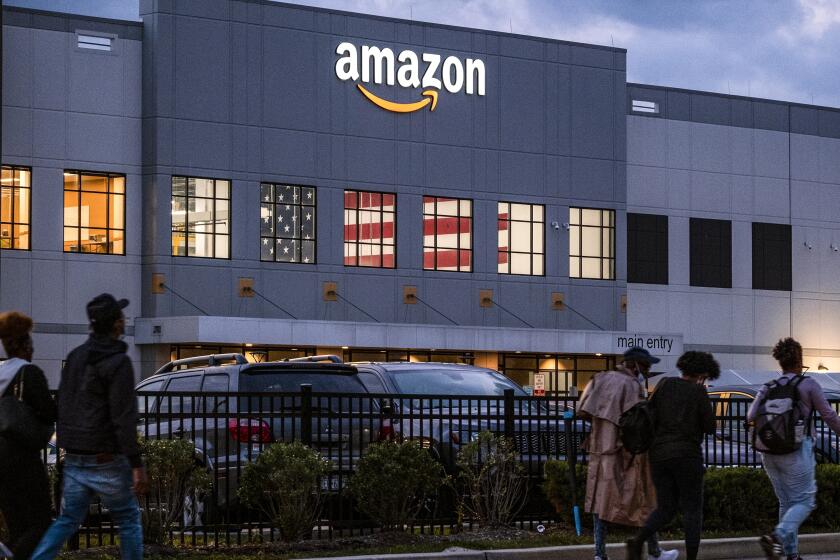CVS, Rite Aid ration emergency contraception as demand surges

- Share via
CVS Health Corp. and Rite Aid Corp. pharmacies are limiting purchases of emergency contraceptive pills as demand for the medication has surged after the U.S. Supreme Court struck down the constitutional right to abortion.
CVS is temporarily limiting purchases to three pills per customer to ensure equitable access and consistent supply on store shelves, a spokesperson said Monday. The pharmacy chain has ample supply of the emergency contraceptives Plan B and Aftera, both online and in stores, the spokesperson said. Rite Aid is also limiting purchases of Plan B to three per customer because of increased demand, a company spokesperson said.
The court’s decision allowing individual states to ban abortion stands to have a strong and long-lasting effect on many dimensions of healthcare. Insurers and clinicians are already planning for pregnant people to cross state lines to seek procedures, leaving employers, insurers and advocacy groups to grapple with the costs and logistics.
From banks to tech firms to Hollywood studios, corporate executives vowed Friday to do what they could to help their employees continue to access abortion after the Supreme Court threw out 49 years of precedent.
Some chains haven’t put limits on the medications. Walgreens Boots Alliance Inc. hasn’t taken such steps, a spokesperson said. Representatives of Walmart Inc. didn’t immediately respond to a request for comment.
News of the limits on purchases was reported earlier by the Wall Street Journal.
Kelso & Co. and Juggernaut Capital Partners, which bought Plan B One-Step from Teva Pharmaceutical Industries Ltd. in 2017, didn’t immediately respond to a request for comment. The two firms operate a company called Foundation Consumer Healthcare that manages the product.
Last week’s historic ruling is likely to make abortions largely illegal in half the country and further polarize a deeply divided nation. Twenty-six states either will or are likely to ban almost all abortions, according to the Guttmacher Institute, a research organization that backs abortion rights. Thirteen have so-called trigger laws designed to automatically outlaw abortion when Roe was overturned.
Many people have already been preparing for what activists have described as a public-health emergency. Last month, when a draft of the Supreme Court opinion was leaked, online searches surged for over-the-counter emergency contraceptive medication, and increasing numbers of women made appointments to get intrauterine devices that provide long-term birth control.
Bloomberg writer Riley Griffin contributed to this report.
More to Read
Inside the business of entertainment
The Wide Shot brings you news, analysis and insights on everything from streaming wars to production — and what it all means for the future.
You may occasionally receive promotional content from the Los Angeles Times.











